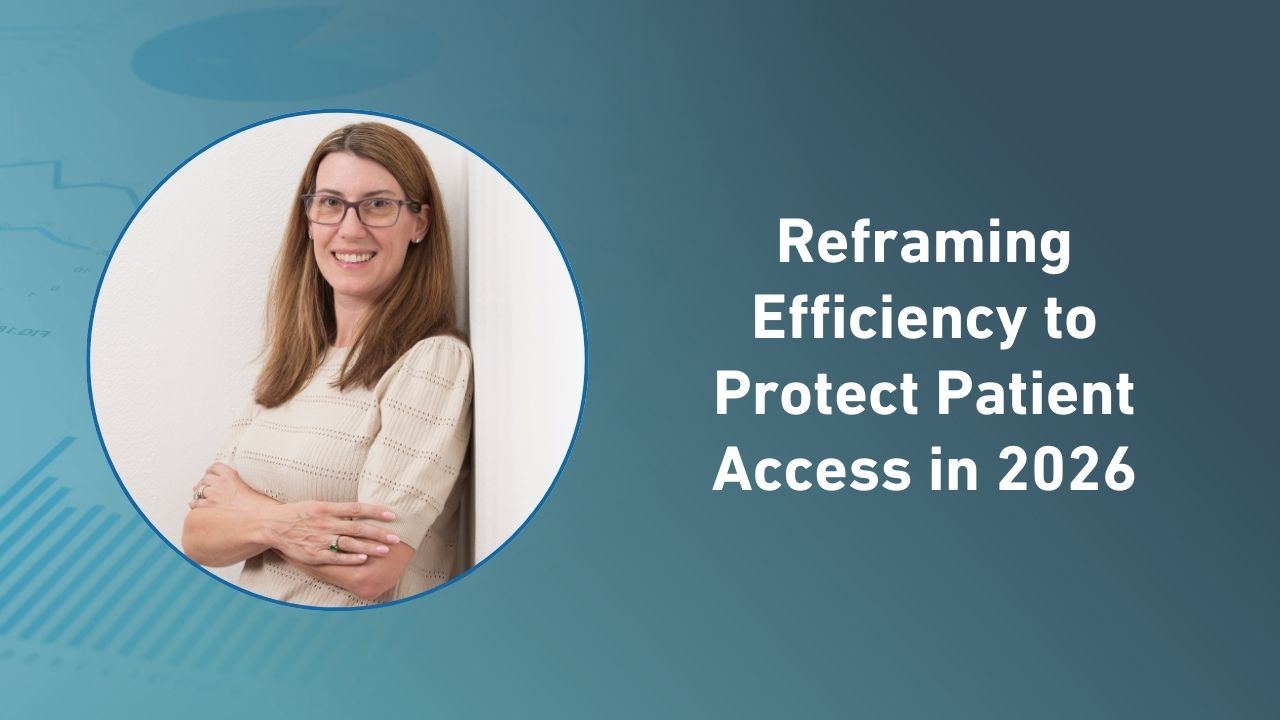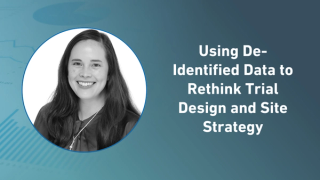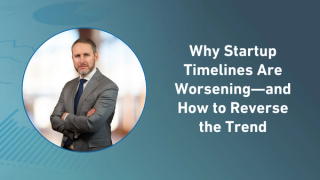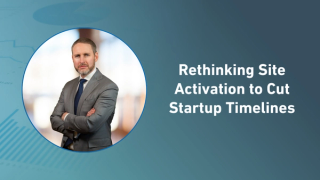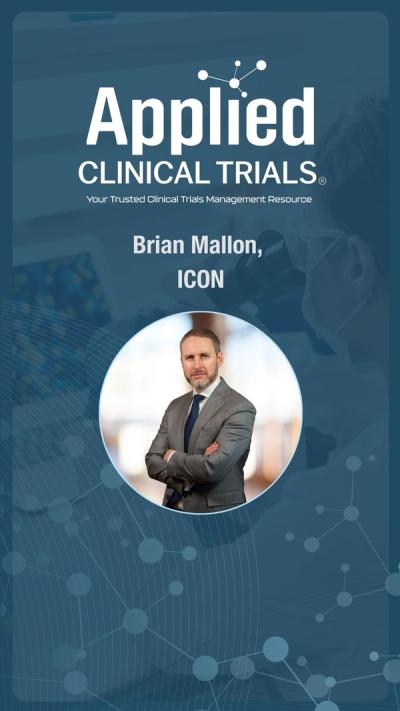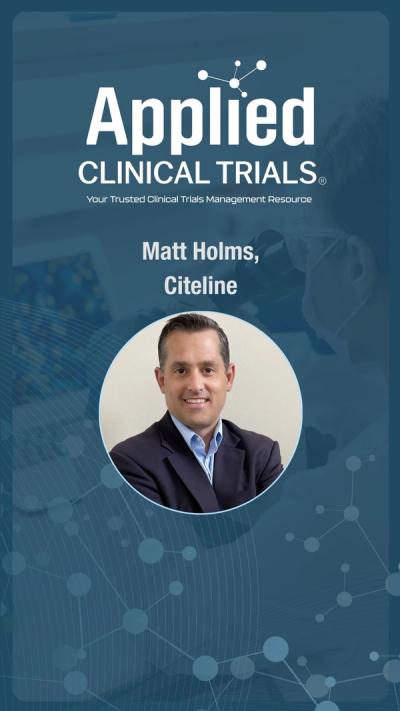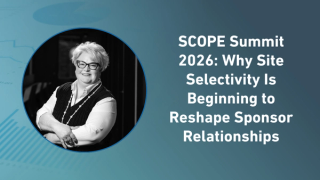
Investigative Sites
Latest News

Latest Videos

Shorts
More News

Analyze how functional sourcing, application strategy, and consistency across sponsors and CROs directly influence site workflows, execution efficiency, and long-term collaboration.

Explore why new tools should aim to remain burden-neutral before delivering efficiency gains, and how sponsors can introduce systems that benefit sites without disrupting daily trial management.

Examine how evolving sourcing strategies, functional standardization, and system choices can help sponsors support sites more effectively while minimizing operational switching and complexity.
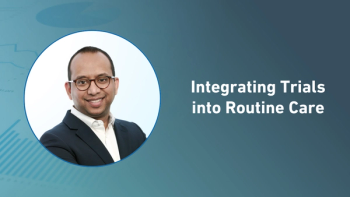
Explore how expanding clinical trials into community and nontraditional sites, simplifying protocols, and leveraging AI can broaden patient access and bridge the gap between real-world care and research.

See how combining human oversight with AI insights improves protocol authorship, site selection, and monitoring strategies, delivering better decisions than AI-only or human-only approaches.

As clinical trials become more complex and decentralized, the role of the CRA is evolving from site monitor to strategic, digitally fluent partner, requiring expertise in hybrid oversight, risk-based monitoring, and multi-system data management.

A new global Tufts CSDD survey of 387 investigative site professionals reveals broad experience with digital and decentralized trial tools, growing site-driven technology investments, and strong support for remote data collection—while highlighting persistent burdens tied to fragmented systems, training demands, and financial strain.

How pharma–hospital partnerships can overcome operational, financial, and organizational barriers to build high-performing clinical trial programs that expand access, accelerate accrual, and strengthen research capacity across both academic and community settings.
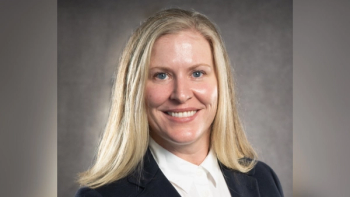
Leveraging real-world data and AI-driven insights in clinical trial planning can reduce enrollment failures, improve retention, and prevent costly rescue studies by providing a more accurate view of patient populations and site feasibility.

Melissa Hutchens, vice president of research & benchmarking at WCG, and Jimmy Garza, senior director of clinical operations at Bayer, discuss findings from the latest WCG CenterWatch Global Site Relationship Survey, revealing a decline in overall site satisfaction. They explore key drivers behind this trend, including technology usability, communication gaps, and limited site input in protocol design, and share actionable approaches to strengthen sponsor-site partnerships and improve study execution.

Gain insight into why sponsors are taking a larger role in site selection and CRO oversight using robust data to validate feasibility before launch.

Discover why strategies must vary by indication and geography and how data-driven matching with supported referrals can outperform site expansion and generic advertising.
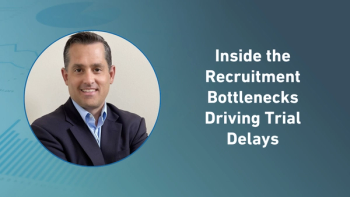
Gain insight into how principal investigator scarcity, frequent protocol amendments, and uneven site performance undermine enrollment and extend timelines.

In this episode of the ACT Podcast, Jeneen Donadeo, executive director of portfolio management at TransCelerate, and Laura Galuchie, senior director and TransCelerate program lead at Merck, discuss the findings from a recent TransCelerate and Tufts CSDD study revealing that nearly one-third of data collected in Phase III trials is non-essential. They explore why trial complexity continues to grow despite industry efforts toward efficiency and share strategies for reducing data burden while maintaining compliance.

Learn how increasing system complexity and patient-facing technologies are creating new burdens for clinical trial sites—and what vendors and sponsors can do to streamline operations and improve support.

Exploring how large-scale patient databases and AI analytics can accelerate site activation, strengthen recruitment, and improve trial design from the start.

Addressing the imbalance in clinical trial workloads by empowering mid-level investigators and using AI to expand access to high-quality, diverse research leadership.

Examining how artificial intelligence can help identify true key opinion leaders in emerging markets to improve site influence, patient engagement, and trial success.

As decentralized and hybrid trial models expand, eConsent is emerging as a critical tool for improving participant understanding, reducing site burden, and strengthening data integrity through digital automation, accessibility, and regulatory compliance.

Capturing insights from clinical research professionals on the key trends and challenges shaping drug development today, from those in clinical trial operations and site relationships, to technology and AI, and the evolving regulatory and policy terrain.

Learn how streamlined confidentiality agreements and consistent workflows can speed site activation and improve sponsor-site transparency.

Gain insight into how listening to site feedback and prioritizing engagement, training, and local patient understanding can drive smoother startups and stronger study outcomes.
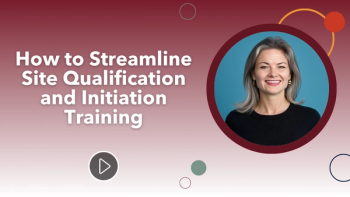
2025 SCRS Global Site Solutions Summit: How to Streamline Site Qualification and Initiation Training
Explore ways to reduce redundancy in site training by applying adult learning principles and focusing on enrollment and randomization essentials.

Discover how early site involvement, streamlined training, and AI-driven tools can simplify system complexity and enhance efficiency in clinical trials.

Learn how internal infrastructure, cultural buy-in, and workflow-focused technology choices can strengthen collaboration and reduce site burden in clinical trials.

